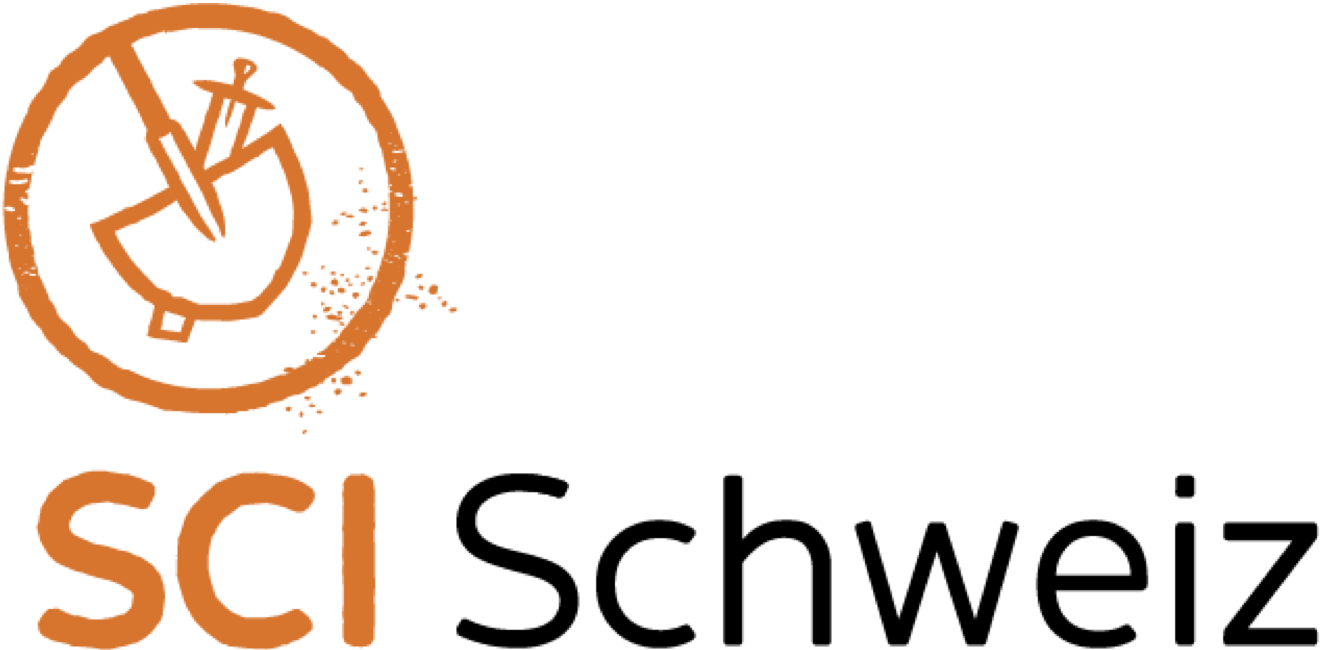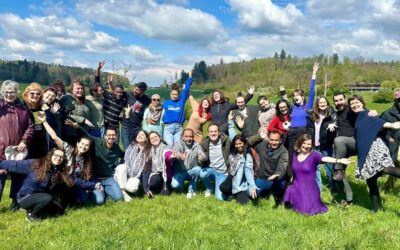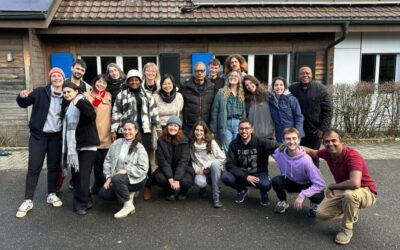
Mohammad Hamadat, Jordan – Ajloun, Space for Sustainable Development
It was my pleasure to participate in a training course on digital environmental storytelling held in Bern, Switzerland, hosted by the Service Civil International – Switzerland from 17 to 24 March 2025.
Global Participation and Diversity
The training was attended by a diverse group of participants from around the world, including participants from Europe (Serbia, Italy, Switzerland, Ukraine, and Turkey), Africa (South Africa), South America (Ecuador and Argentina), Central America (Costa Rica), and Asia (Sri Lanka). Together with my colleagues from the Jordanian team, we explored the issue of climate justice and discussed how to use digital tools to highlight environmental issues such as climate change and others to stimulate effective change.
A Unique Training Approach
This training was unique, not only because it brought together participants from different countries around the world, but also because of its practical approach. Instead of just discussing environmental issues from a theoretical perspective, we participated in interactive activities that helped us understand the environmental contexts and problems that each country faces and how environmental issues are interconnected. The world we live in has many commonalities. What happens in Costa Rica will undoubtedly affect Jordan. We also learned how to design and implement realistic environmental campaigns, and the message was clear: defending the environment should not be limited to slogans; we must translate this into actual initiatives that achieve the desired impact to save the planet.
One of the most important lessons I learned from this experience was that every individual can make a difference, regardless of where they live.


Motivation for Local Change
Participating in this training not only raised our awareness of environmental issues but also motivated us to bring about change in our local communities. I am from Ajloun, a region famous for its rich forests and natural beauty, which is like the lungs of Jordan. This beautiful region, rich in green forests, is suffering today from deforestation, and Ajloun is suffering from a lack of green spaces as a result of human behaviour in cutting down trees and removing entire forests, which requires urgent intervention.
Practical Steps for Environmental Protection and Shared Solutions
Through this experience, I have learned that from my position, I can do something to save the forests of Ajloun. By designing digital environmental campaigns and taking practical steps such as advocacy and fundraising campaigns, we will be able to bring about the desired change and save the green forests of Ajloun.
Meeting activists from around the world also opened my eyes to the global nature of environmental struggles. Whether it was deforestation in South America, industrial pollution in Europe, or plastic waste issues in Asia, I saw how our challenges are interconnected, and our discussions confirmed that local efforts contribute to a global movement and that no action is too small to matter.
The Importance of Teamwork, Diversity and Collective Responsibility
Teamwork was one of the key topics of the training, where we learned that building effective teams is the key to success in any environmental campaign. We realised that cultural diversity in the world is not an obstacle, but a source of strength, as each of us brings our own unique experiences and knowledge, and when we come together, we become more capable of facing challenges.
The environment and climate do not recognise geographical boundaries. The environmental crisis threatens everyone without exception and does not distinguish between one country and another or one people and another. For this reason, no society can face these crises alone. Rather, we must all work as a united global team. If we unite, we can make a real difference. We realise that we share the same destiny and that preserving our planet is a shared responsibility that requires our solidarity and joint action for the sake of our environment and the future of generations to come.


Resilience as a Key Concept
During the training, we learned many technical terms and became familiar with many important concepts in today’s world. One of the words that left a deep impression on me was ‘resilience,’ as we all realised that the environmental challenges we face today are enormous, but not impossible to solve. Resilience means being strong, refusing to give up, and standing firm in the face of climate change and environmental degradation. Yes, we are facing unprecedented environmental disasters, but this is not a time for despair, but a time for action, challenge and determination.
Resilience means believing that every problem has a solution, every effort has an impact, and every voice has power. To be resilient means to protect our planet with all our determination and to continue to fight for a sustainable future, no matter how difficult it may be, because if we do not persevere today, there will be no tomorrow to fight for.
Practical and Informal Learning
One of the most distinctive aspects of this training was the informal learning approach. Unlike traditional teaching methods, this educational experience was built around interactive and practical participation.
Some of the most impactful aspects of this approach included:
- Interactive workshops: Rather than simply discussing campaign strategies, we designed and tested campaign prototypes, receiving immediate feedback.
- Role-playing scenarios: We participated in role-playing exercises where we had to respond to environmental crises in real time.
- Collaborative learning: Working in diverse teams, we shared insights, strategies, and experiences, which added to the diversity of our perspectives.
This experiential learning method ensured that the lessons we learned were not just theoretical concepts—they were practical skills and personal experiences that will stay with us forever.
A Shared Future
In conclusion, I must express my deep appreciation to everyone who contributed to this educational journey. We hope to be able to transfer this experience to our local communities and contribute to the development of effective initiatives and campaigns to positively contribute to this world.
Through this platform, I address a message to everyone concerned: today, planet Earth is reaching a breaking point. Rising temperatures, deforestation, and biodiversity loss are pushing our planet towards irreparable collapse. Science warns us: if we do not act now, future generations will face a world where survival is a struggle, not a guarantee.
But the future is not yet written. We have the tools, technology, policies, and collective action to reverse the damage, and each of us can contribute to making this planet livable again.
This is not just a matter of saving nature; it is a matter of saving ourselves. The air we breathe, the water we drink, and the food we eat all depend on the decisions we make today. The question is no longer whether change is necessary, but do we have the courage to make it happen?



